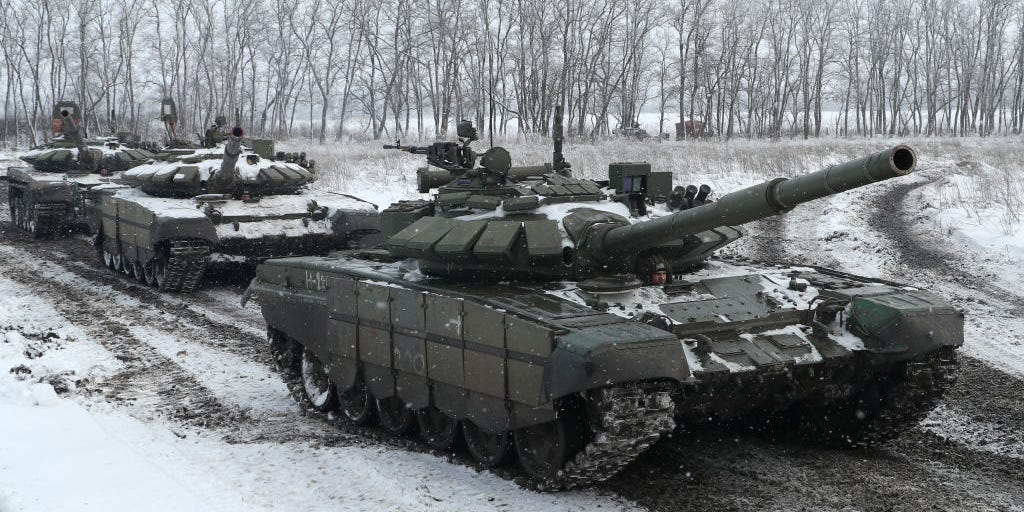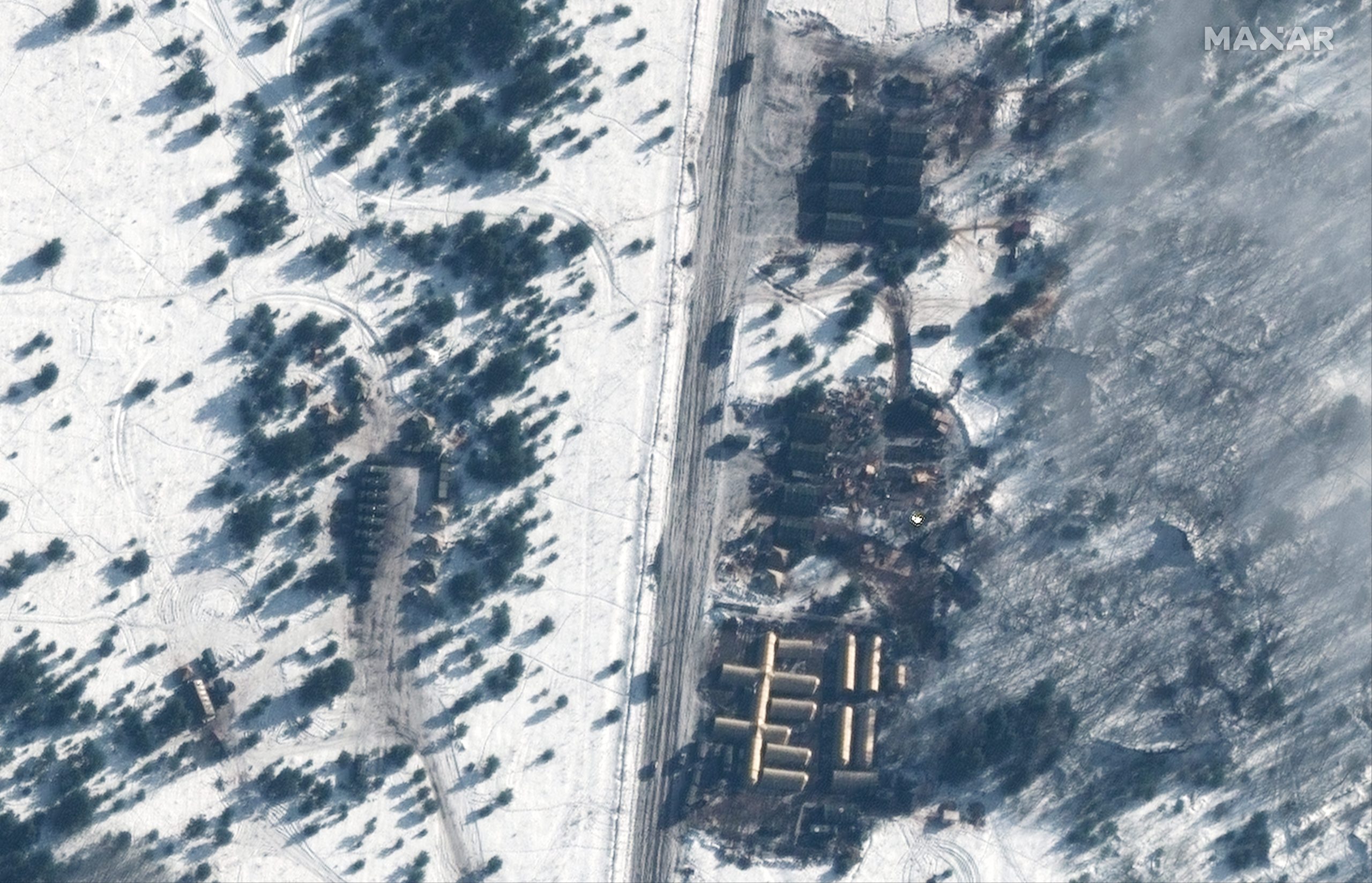
- New satellite images of Russia's significant military presence around Ukraine have come out in recent days.
- One photo showed an apparent field hospital, which experts say could signal Russia is preparing for bloodshed.
- Russia said on Tuesday that it will withdraw some of its forces, but some questions remain about whether Russia is de-escalating.
New satellite images have emerged showing Russian troops and military equipment deployed near Ukraine, stoking fears that Russia is planning to invade the country. One photo in particular appears to show a sign that Russian troops have been there for more than training, experts say.
The satellite images, taken last week by US space technology company Maxar Technologies, show the Russian military buildup in Crimea, Western Russia, and Belarus. In addition to troops and other equipment, one of the images appears to show a field hospital in Zyabrovka, Belarus, about 15 miles from Ukraine's border.

Expert observers told Insider that a field hospital, especially considered with the 150,000 Russian troops near the border, is a troubling sign, one that could signal preparation for serious bloodshed and is somewhat unusual for training.
—Rob Lee (@RALee85) February 10, 2022
Russia said on Tuesday that Russia is open to further talks and plans to pull back some troops from the Ukrainian border, but the West remains skeptical. NATO Secretary General Jens Stoltenberg said that Russia's position is grounds for "cautious optimism" but further noted that the alliance has not seen "any sign of de-escalation on the ground."
Jeffrey Edmonds, a former military analyst with the CIA and current Russia expert at the Center for Naval Analysis, believes that the threat of invasion remains imminent.
"It's essential to remember how large this deployment is on the border," Edmonds told Insider, explaining that it is "the largest thing we've seen in modern history since the Cold War."
Edmonds said that Russia saying they are going to withdraw some units does not necessarily mean they are not going to invade.
Russian President Vladimir Putin "could be doing this to take back the narrative," Edmonds argued. "He could be doing this to redeploy those troops other places. There's nothing to say that the Russians couldn't create some kind of pretext and go in within the next week or so."
The field hospital is especially significant, he said, suggesting it undermines Russian claims its forces are simply training. While it is normal to have some medical assistance on site during military exercises, field hospitals and large amounts of medical supplies indicate that greater bloodshed may be coming.
"You don't conduct a training exercise where you expect large numbers of casualties," Edmonds said.
"If that's the case, you've really done something wrong or your military is very incompetent," he said, adding that his thinking is that "you deploy large medical assets when you expect heavy casualties from actual war, not from a training exercise."
Mark Cancian, a former Marine colonel and senior advisor at the Center for Strategic and International Studies, told Insider that by itself, a field hospital is not a necessarily a big deal, but is more ominous coupled with Russia's other military actions.
"On top of all the other things going on, it's one more indicator," Cancian said Monday of the apparent field hospital, adding that the intelligence community keeps track of numerous indicators, like setting up a field hospital, that a country is preparing for war.
Cancian said that he has reluctantly come to the conclusion that military action by Russia is imminent.
"For a long time, I thought that Putin would de-escalate, demobilize, feeling that he had made his point, that everyone in the West now knew that if Ukraine became a member of NATO, that he would react violently," Cancian said.
"The fact that these indicators keep ticking off makes me think that some sort of military action is much more likely," he said.
While some experts think Russia may go big, Cancian said that he thinks Russian military action on a smaller scale – like invading territory near the Donbass region where the Ukrainian armed forces have been battling Kremlin-backed, pro-Russian separatists for the past eight years – is more likely than a "big sweep" into Kyiv.
The US is not taking chances though. It has relocated its diplomatic operations to Western Ukraine, and President Joe Biden issued a warning last week to Americans in Ukraine, urging them to leave as soon as possible.
"It's not like we're dealing with a terrorist organization," the president told NBC last week. "We're dealing with one of the largest armies in the world. It's a very different situation, and things could go crazy quickly."